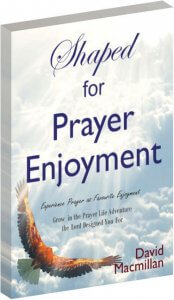The Father has made his throne accessible. He has removed every obstacle that made conversation with him impossible, enjoys our company, and wants us to ask for his help (Heb 4:16). And yet, sometimes choosing not to ask is best.
There’s an enduring fragrance in heaven, the distinct incense of Christ’s victory. Every prayer request we make for the Lord’s help blends with that aroma. Our asking adds to the celebration of his triumph.
By asking, we show our trust in what the Father says about himself: he is a generous giver of mercy and grace. By not asking, we could exclude ourselves from blessings he wants to share with those who ask for his help (Jas 4:2).
And yet, sometimes choosing not to ask is best.
Ask… And Keep Asking
When praying, there is often an urgency surrounding the need, or an emotional attachment to the circumstances. So, we usually look for immediate answers to our asking.
Asking for the Father’s help is simple, but the outworking of the answers can be complex. It involves timing, lives and circumstances beyond our own, the multi-level plans of God, and his perfect understanding of what’s best for us. When he delays his answer, he encourages us to not give up but trust his love and keep asking. (see Why Keep Asking).
And yet, sometimes it’s right to stop asking.
Stop Asking
The Lord might nudge us to stop asking because NOT answering will serve our good (and his plans) more than the answer we want. Paul’s thorn in the flesh request is an example (2 Cor 12:7-10). Instead of removing Paul’s weakness, God told him he would multiply grace and power to him because of it. That word gave Paul inner rest concerning his need. He knew that, from that point on, choosing to not ask for it was best.
Sometimes a ‘stop asking’ notice is imperative because of the mix of wrong motives and impure appetites in the praying (Jas 4:3).
Choosing Not to Ask
There are times when it’s wise to avoid a certain request in order to focus on another. That is, we refrain from (or delay for a period) asking for certain things in order to give full prayer attention to something more pressing. This selective asking is not about choosing between ‘good and bad’ requests. Rather, it’s the willingness to ‘fast’ from certain legitimate requests in order to allow undistracted prayer space to something more urgent.
The Lord hears what we ask for; he is also aware of what we choose not to ask for and why.
God said to Solomon: Ask for whatever you want me to give you (2 Chron 1:7-12). The newly crowned king could have recited a wish list to God. Instead, he selected the one request that was most pressing: his need of wisdom. This was, literally, his dream request – and he waived the right to ask for other things so as not to detract from the urgency of it. His ordering of asking priorities so impressed the Lord that he not only gave the king wisdom, but added blessings he hadn’t asked for.
The following is more than a prayer administration exercise; it’s a fresh opportunity to hear the Lord regarding people and situations that feature regularly in your prayer life. In your collection of prayer points, are there those you can mark in one of the following ways:
- Keep asking – the request is unanswered, or partially answered
- Stop asking – there is an inner rest about releasing the request
- Stop! or adjust the asking – you have a sense of wrong motive or impure desire behind the request (your own, or a point someone has invited you to pray for). Check with the Lord if he is signalling to stop asking, or to adjust the prayer focus.
- Pause asking – delay praying about certain needs in order to focus time and heart’s attention on an issue that is more urgent, or of high value. For instance, choosing to waive asking for personal needs for a period of time in order to prioritise a strategic need (e.g., Gospel breakthrough in a resistant place, a resurgence of hunger for God in a church community), or for someone with a critical need (e.g., serious illness, failing marriage).




